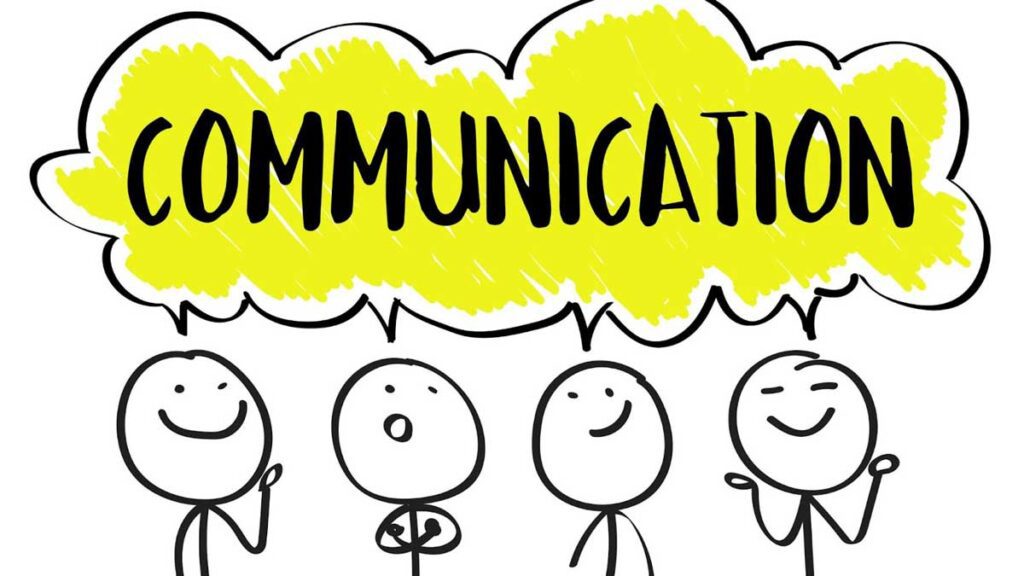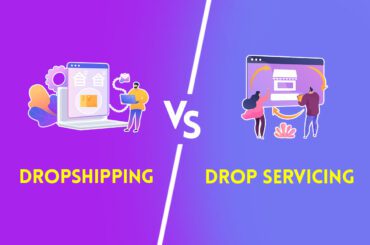You can succeed in management by having a wide range of skills. Sometimes it seems like managers are expected to handle everything. Holding people responsible for weak performance, for instance, can boost morale and motivate a team.
However, managers must also have empathy. What method does management use to balance these conflicting needs?
To help you understand what skills potential employers are looking for when hiring, this article will examine 12 Skills for a Manager Resume in 2022 that managers must have when applying for a new job. Let’s start with the basics.
What Does A Manager Do?
The finest managers share various characteristics across all business sectors and types. To accomplish tasks, you must work with others, concentrate on the professional growth of your team, and ensure that work streams are moving forward profitably.
Regardless of the nature of your management work, having organizational and leadership skills is essential. There are many more checkboxes to check before being considered a great manager.
What aspects of the position may you highlight on your management skills resume, though? First and foremost, clear written and verbal communication skills are the key to effective management.
Setting goals for employees, assisting in the alignment of their efforts with the broader plan, and changing course as needed in response to results are all responsibilities of managers.
The best managers are aware that, in addition to the unavoidable task-based character of every function, they also need to offer their staff members the time and space to develop. Despite this, managers still depend on their staff members to provide desired results.
What Are Management Skills?
The ability to effectively manage people and plan, coordinate and monitor projects fall under management abilities.
Various businesses have different requirements for management skills, but they all require a combination of soft and hard talents.
Personality attributes of a successful manager include soft management skills. Strong organizational, communication, interpersonal, and time management abilities, for instance, are essential for good managers.
To succeed as a manager, one must have hard management skills, typically acquired through training or on-the-job experience. These consist of skills including public speaking, negotiation, and tool and program knowledge particular to the sector.
Every single skill of manager is important. Your management skills on resume should highlight key hard and soft skills to demonstrate that you are a well-rounded applicant.
Include accomplishments unique to the industry if applying for a managerial position with a more narrow focus, like a restaurant manager. Learning these key list management skills will help you land your next job.
Top 12 Skills For A Manager Resume In 2022
1. Past Success And Experience

Success in the workplace and previous work experience is crucial for a manager trying to get a new job role.
A person’s documented employment history can give an employer a lot of knowledge about whether a recruit will contribute to the workplace, the team, and the ongoing development and success of the business.
The idea that one should “concentrate” on their studies to guarantee excellent scores on their final exam is being accepted by far too many people today.
An admirable goal; yet, in the corporate world, companies tend to prioritize experience and proven work skills over education.
According to a 2013 Randstad Workmonitor survey, 84% of employers ranked experience above education. And the majority would agree that belief is still true after two years.
Part-time employment and first jobs are too frequently seen as “income producers” rather than “career foundations” by society.
Every job you hold after you start working gives you an immeasurable chance to build a network, a portfolio of references, and professional experience. Simply said, the experience you gain leads to the money you make.
Furthermore, the experience need not have been gained through “paid” work. You will succeed as a manager if you have contributed your time and effort to a recognized organization that can serve as a good reference for you.
2. Project Management
The reason project management is crucial for managers is that it makes sure realistic expectations are set regarding what can be delivered, by when, and for how much.
Budget estimates and project delivery timeframes may be made without effective project management and a sound project plan that is overly ambitious or lack parallel estimating knowledge from similar projects.
In the end, this means that projects are delivered late and over budget without effective project management.
Negotiating fair and feasible timelines and milestones with important stakeholders, teams, and management should be able to be done by effective project managers.
Too frequently, the need to deliver results quickly affects the essential phases and, in turn, the project’s final product’s quality.
As most tasks will take longer than initially planned, which is a given, a smart manager will be able to assess, balance, and create a timetable that is both realistic and within the constraints of the resources that are available.
Due to the planning’s increased impartiality, project management is crucial while scheduling.
A smart manager establishes a clear process with realistic deadlines so everyone on the project team may operate within acceptable limits and not with unrealistic expectations.
Related: Here is our guide on How to Manage Risk in Any Project in 10 Steps.
3. Planning

Managers may or may not be directly involved in developing company strategy and policy, but even those who still need to be able to plan. You may be given goals to achieve and then given coming up with plans to do so.
It can be necessary to modify or adapt someone else’s plan in light of fresh information. You must identify your resources in both scenarios, create schedules and budgets, and assign tasks and areas of responsibility.
The best way for aspiring managers to polish their talents is to offer to help their present supervisors during various stages of departmental planning.
Another option to develop and show planning skills is to plan events for professional organizations.
You can show your proficiency with technology by mastering planning software, such as NetSuite OpenAir, and project management software, such as Workfront. College students who want to improve their planning abilities can take on leadership roles in campus organizations.
Having these skills will help you in planning better:
- Analysis of Business Issues
- Examining Spending
- Critical Analysis
- Creating Plans for Entrepreneurship and New Business Development
- Identifying Stakeholder Interests and Preferences
- Microsoft Office
- Offering solutions to Business issues
- Qualitative research, problem-solving abilities
- Planning Strategically
- Strategic Analysis
- Making Use of Information Technology to Speed Up Decision-Making
- Writing business project or initiative proposals, Vision
- Management of Projects Using Planning Software
4. Team Building
A manager must simultaneously study and impart knowledge on team building. Working with their team members, customers, suppliers, external contracts, clients, and anyone else that shows up in their inbox each morning will require a manager to be flexible and dependable.
Psychology and behavior science both support the benefits of teamwork. Pulling Together: 10 Rules for High-Performance Teamwork author John J. Murphy observes that “people may generate solutions that are practical and effective when they play off each other’s skills and expertise.”
Collaboration has been shown to create satisfaction, personal growth, burnout protection, the development of specialized skills, increased productivity, the taking of meaningful risks, reduced stress levels, and greater creativity.
5. Time Management

If you are a manager seeking a management role, time management skills are necessary. What is the definition of time management?
The idea sounds straightforward. It involves meticulously managing time so that workers may make sure they meet deadlines.
To prevent employees from becoming overburdened and under excessive strain, time management is not about working harder but rather about working smarter.
Employees who manage their time well will meet deadlines, increase their effectiveness, be more productive, and produce superior work.
Additionally, they will feel less stressed, which will help them advance in their careers and, in turn, reduce the staff turnover at your company. They will also have a higher degree of job satisfaction.
Some of the benefits of good time management are:
- Efficiency and performance improvements.
- Completing tasks on schedule.
- Less anxiety and stress.
- Better job quality.
- Encourages confidence.
- Reduces laziness and procrastination.
- Enables better work/life balance.
- Make wiser choices.
You can read more about time management in our guide on How To Manage The Time With Your Business.
6. Organizational Skills
Creating structures to support or carry out a plan is the general definition of organizing. This could entail establishing a new system for assigning reports, constructing a new office layout, organizing a conference or event, developing a strategy and planning around moving through a project, or figuring out how to work toward deadlines or measure milestones.
Aspects of the organization could also include supporting the effective subordinate management of the leaders you are guiding.
The ability to see the large picture is necessary for an organization, which is all about planning and foresight.
Identify your department’s processes, procedures, or events that may be improved. Then, show how you can redesign those processes to increase efficiency or improve quality. Create a manual or spreadsheet with your procedures so you can refer to them later.
Having these skills will help you in organize better:
- Accuracy.
- Ability to manage and analyze.
- Evaluating the variables that affect productivity
- Business narrative.
- Communication Framing for Particular Audiences.
- Innovation.
- logical reasoning
- Logistics.
- Negotiating.
- Networking.
- Persuasion.
- Presentation.
- Speaking in public.
- Providing Ideas to Improve Productivity
- Technical expertise.
- Technology.
7. Communication

The capacity for effective communication, including understanding and being understood, is one of the necessary traits for a manager.
A manager’s ability to communicate effectively affects not only the team but also the client and stakeholders because effective communication is the foundation of any successful relationship.
Effective communication, however, does not just happen. It begins with investing the time and energy necessary to get to know your team well, followed by developing a suitable communication plan and related communications tools that attract the various personality types.
Since we might have different team members for each project, we have had to change our communications approach. This is because certain people may not respond well to certain communication structures or systems.
Listening, being clear, and ensuring you’re understood are three essential communication skills for a successful manager.
Almost any obstacle may be overcome if the information is communicated properly, to the appropriate person, at the appropriate time, and through the proper channel.
8. Social Awareness
You undoubtedly need to possess social awareness skills if you are a manager. Understanding the thoughts and needs of the people, one interacts with is the definition of social awareness.
People develop emotional intelligence at a young age; this is one of its core principles. As it enables them to interact and work more effectively with others, social awareness is a crucial quality of successful employers and managers.
A person with a stronger social awareness is more likely to succeed between two equally skilled and qualified professionals. A great employer should enjoy working with people.
Your performance and those of your staff members both gain from increasing your social awareness.
Social awareness enhances your ability to empathize with and comprehend other people, which will also help you build better relationships with your staff.
Employees’ self-esteem and motivation can be raised through effective communication, which increases their productivity and effectiveness at work.
9. Problem-Solving Skills

As a manager, it’s crucial to solve problems because it promotes business success and benefits personnel. Managers that can successfully navigate challenges can boost their productivity, boost team morale, and promote creativity within their department.
When a team or department performs successfully, the business gains, and everyone can carry on daily activities without interruption. To help you better comprehend the advantages of problem-solving as a manager, the following is a list of advantages:
- Better team unity: A manager with problem-solving skills may make a better team leader.
- Workflow improvement: When managers can successfully eliminate obstacles, their team may focus on other duties.
- Customer and client satisfaction: Customers and clients value the timely delivery of correct or well-made services or products.
- Exceeding work expectations: Managers with strong problem-solving skills can go above and beyond the call of duty.
- On-time project completion: Employees can finish and deliver projects on time by finding solutions to issues.
- A manager who works through issues with their team can create a welcoming work environment where employees feel at ease asking questions.
Here is our guide on the Top 10 Skills Of Problem Solving With Examples.
10. Responding To Feedback
As a manager, you will unavoidably need to respond to both criticism and unanticipated events, being mindful of modifying your approach as you go.
It takes humility to listen to your staff when it’s essential and professionalism to handle the criticism for management to be successful.
To demonstrate to potential employers that you can respond to your team’s input, highlight some of the nine management skills listed below:
- Mentoring.
- Troubleshooting.
- Performance evaluation.
- Producing reports.
- Recruitment.
- Performance assessment.
- Negotiation.
- Adaptability.
Advantages of feedback include:
- Everyone stays on course with feedback.
- Feedback helps in preventing costly errors on your team.
- You build stronger connections.
- Positive criticism inspires people.
- It fosters both professional and personal growth.
- Getting feedback promotes a welcoming workplace.
- Feedback has some immediate advantages for a company.
11. Computer Proficiency

A computer is used in some capacity in almost every profession. So it’s nothing different if you are a manager.
Include this skill as a management skills on a resume, so companies know you at least understand the fundamentals of computers since many positions require more in-depth computer knowledge.
Make sure to emphasize these skills on your managerial skills resume if the position you seek calls for more sophisticated computer skills. One should highlight their proficiency with word processing, spreadsheets, social media, data visualization, and email.
Importance Of Computer Literacy:
- More employment options
- Future-ready preparation.
- Better communication at a lower cost.
- Proficiency in computers increases professionalism.
You Can Learn These Computer Literacy Skills As A Manager:
- Basic computer skills.
- Microsoft Office or GSuite.
- Microsoft Word or Google Docs
- Microsoft PowerPoint or Google Slides.
- Microsoft Excel or Google Sheets.
- Social media and search engines.
- Email and other communication programs like WhatsApp.
- Payroll systems.
- Networking diagnosis and troubleshooting.
12. Conflict Resolution
Schedule-making, employee motivation, budget management, and performance evaluation are just a few of the many responsibilities that managers have.
When necessary, managers must also serve as mediators in workplace disputes. To successfully lead your team, learn why conflict resolution is crucial and how to handle it.
Resolving conflicts is crucial for managers since it keeps all employees happy and comfortable. Employees can tell you care about their well-being and the productive culture of the office by seeing how swiftly and skillfully you handle disputes. The advantages of resolving disputes include the following:
- Reducing disruptions at work
- Increase productivity.
- Higher success rates for projects.
- Decreased absences.
- little turnover
- Reduction in termination
Conclusion
The key to becoming a manager is to develop and highlight your strongest skills.
Here are the top 5 things to remember when putting management skills in a resume::
- On your managers resume, highlight both your interpersonal and technical skills.
- Use your managerial skills to provide more context and detail for your job descriptions in the work experience area.
- Give adequate details in the area of your talent so that they are highly applicable to the position you are looking for.
- Obtain certifications to develop your technological knowledge.
- Study management from a mentor in the field.












